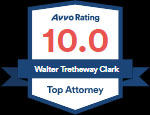We have repeatedly warned about the dangers of forced arbitration agreements when dealing with corporations—but did you know your employer can also ask you to sign an arbitration agreement? As these types of agreements become more common across the board, employers are also increasingly included them in their new hire paperwork. Signing the agreement might not seem like a big deal as a new employee, but it can be a problem down the road if your rights are violated at work.
Signing an arbitration agreement as an employee means that you agree to settle any disputes via an arbitrator, as opposed to bringing a lawsuit. You waive your right to sue your employer for any job-related issue. This could include wrongful termination, discrimination—even some cases of harassment.
The Problem with Using Arbitration to Settle Workplace Disputes
While arbitration is usually faster and less costly than a jury trial, the disadvantages to the employee generally outweigh the benefits. Juries are often sympathetic to employees, whereas an arbitrator is one person who will likely be selected by your employer. You will also be limited in the amount of information you can obtain from the other side. This can hurt you as the employee, as your employer probably possesses most of the documentation relevant to your case.
Additionally, the arbitrator’s decision is final. If you think the arbitrator’s decision was unfair, you will not be able appeal it like you would a jury verdict.
What Can You Do as an Employee?
If you are considering accepting a new position from a company, read over all of the paperwork thoroughly. You are legally bound to any agreements you sign, whether or not you have actually read them. If your new potential employer has included an arbitration agreement, you have a few options:
- Refuse to sign the paperwork with the agreement in place. If you are a sought after hire, this could work. However, understand that if the employer does not want to do this, they can choose to rescind their employment offer.
- Ask to negotiate the terms of the agreement. Usually these agreements are very one-sided in favor of the employer. You can ask to have a say in choosing the arbitrator, in order to eliminate bias. You can also ask that the employee pay for the arbitration, since they are the one wanting to use it.
- Sign the agreement as is. This is certainly not the best option for protecting your rights. However, in some cases you might not have much of a choice. Know that while arbitration does bar you from suing your employer, you still retain the right to report issues such as discrimination and harassment to the government. This includes agencies like the Equal Employment Opportunity Commission (EEOC). If the agency decided to, they could sue your employer on your behalf.
“Forced arbitration agreements can be harmful to employees. Remember to always read all the paperwork you receive upon being hired before signing any agreements,” said Attorney Walter Clark, founder of Walter Clark Legal Group.
Our firm has been handling personal injury cases throughout the California Low Desert and High Desert communities for over 30 years. With a 95% success rate, the California personal injury attorneys at Walter Clark Legal Group will fight to hold those responsible for your loss accountable and win compensation to cover medical bills, lost wages, and pain and suffering. If you have been injured and want to discuss your legal options, contact us today for a free consultation with an experienced personal injury lawyer. We have offices in Indio, Rancho Mirage, Victorville, and Yucca Valley and represent clients through the entire California Low Desert and High Desert communities.
DISCLAIMER: The Walter Clark Legal Group blog is intended for general information purposes only and is not intended as legal or medical advice. References to laws are based on general legal practices and vary by location. Information reported comes from secondary news sources. We do handle these types of cases, but whether or not the individuals and/or loved ones involved in these accidents choose to be represented by a law firm is a personal choice we respect. Should you find any of the information incorrect, we welcome you to contact us with corrections.
- What To Do If You Have Been Injured At A Concert In California? Mar 27,2024
- Walter Clark Legal Group Reimburses Thanksgiving Ride Fares Nov 14,2023
- Walter Clark Legal Group Donates Backpacks to Booker T. Washington Elementary School Aug 22,2023
- Walter Clark Legal Group Donates Backpacks to Underserved Students Aug 22,2023
- Walter Clark Legal Group Reimburses Labor Day Ride Fares Aug 21,2023
- 2023 Safe Ride Home Program Jun 21,2023





















